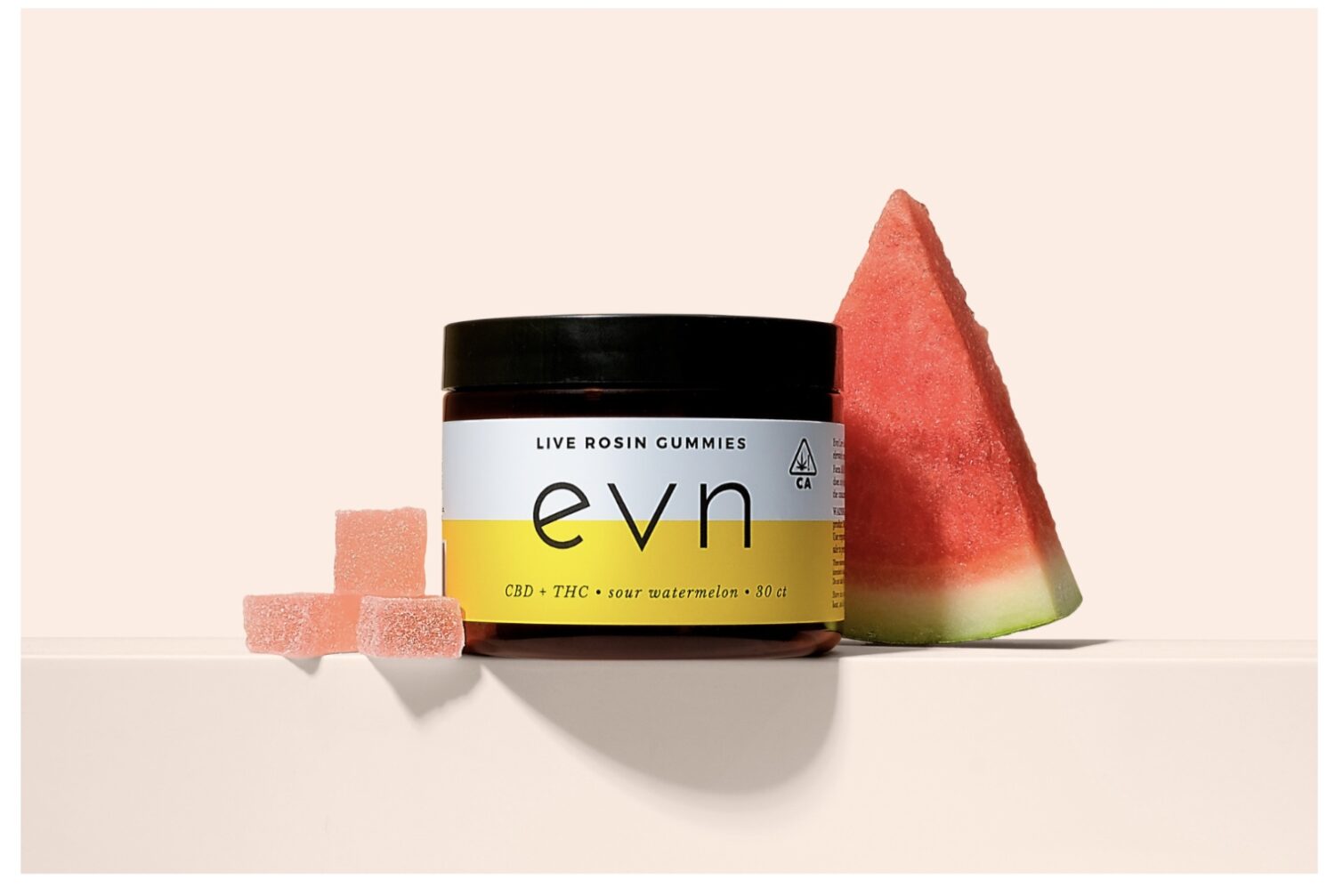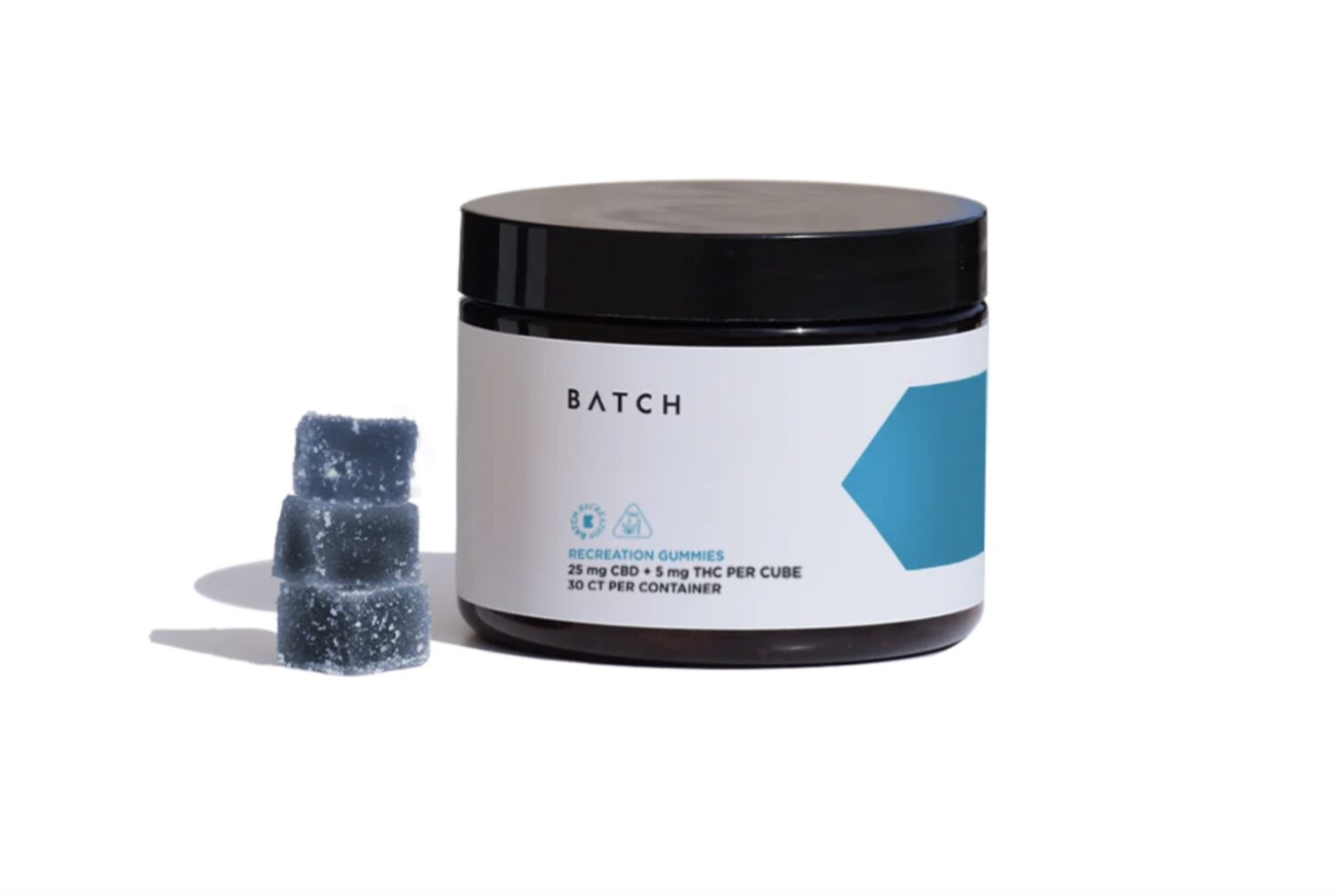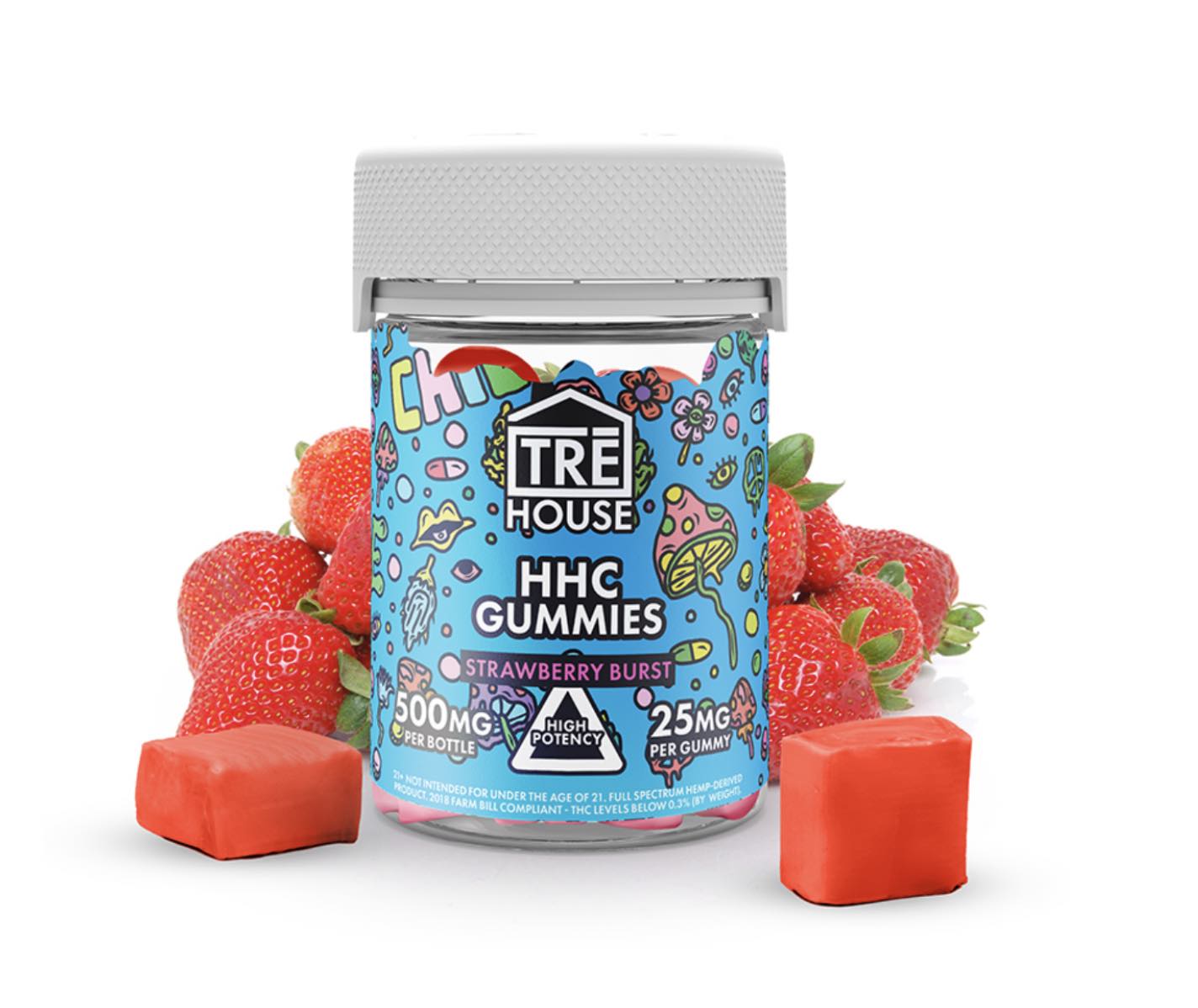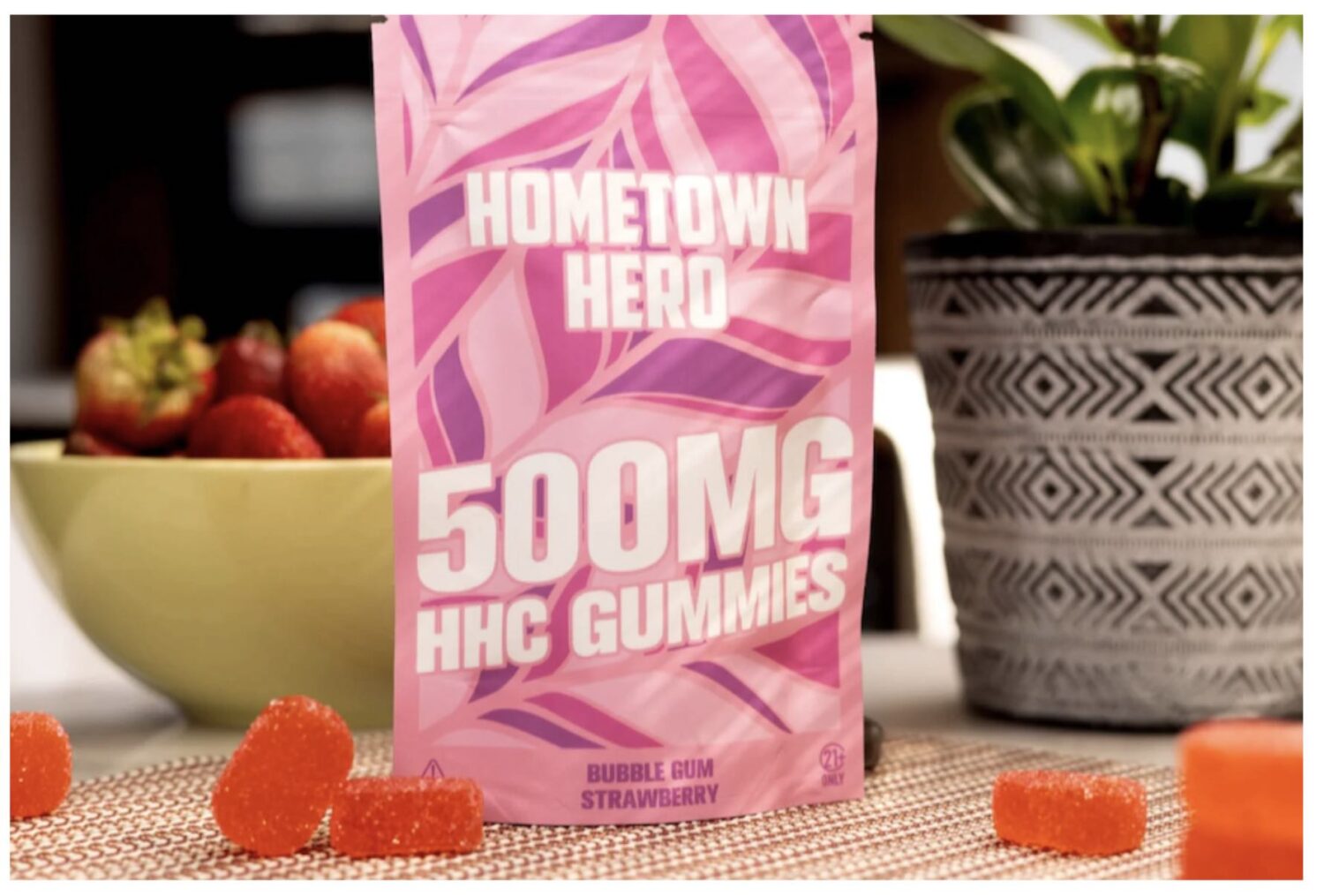HHC vs. THC: Differences, Uses, and Top Products
If you’re familiar with cannabis, then you might have heard the term “cannabinoid,” referring to a variety of chemical substances found in the plant that bind with our cannabinoid receptors to create specific effects.Scientists have uncovered more than 100 cannabinoids, including the most popular and well known, THC, along with a number of cannabinoids gradually gaining popularity in the hemp-derived market, like HHC.Many cannabinoids promote similar actions and offer comparable benefits. For example, THC and HHC are both psychoactive, but there are still a number of important distinctions to be aware of as you shop for your next cannabinoid product.If you’re stuck between a THC or HHC product, or simply want to learn more about the two cannabinoids, keep reading!Best THC Products
- Evn Live Rosin Gummies
- Batch Recreation THC Gummies
Best HHC Products
- TRĒ House High-Potency HHC Gummies
- Hometown Hero HHC Gummies
Key Takeaways
- HHC and THC are both psychoactive cannabinoids..
- HHC tends to be less potent than THC, though they generally offer many of the same effects.
- THC and HHC are both federally legal, though many states have their own unique rules around cannabinoid sales.
What is HHC?
Perhaps you’re only just hearing about HHC, but the cannabinoid and relative to THC has been around for decades. It’s new to the modern-day hemp market, but HHC was first synthesized by Roger Adams and his team in the 1940s.It’s considered a minor cannabinoid and occurs naturally in cannabis in very small amounts, so small that extracting it directly isn’t generally cost effective. Similar to a number of other cannabinoids on the market today, HHC is made from hemp-derived CBD in a lab through chemical processes.It’s molecularly very similar to THC and similarly offers psychoactive effects, though that’s not to say the two are the same.What is THC?
Delta-9 THC is the main psychoactive compound found in cannabis. There are several different types of THC, including delta-8 and delta-10, but delta-9 THC is the most common and is typically what people mean when they say “THC.” You’ll find delta-9 THC in products you buy at a legal dispensary, and you can also find it in hemp plants and hemp-derived products.With the passing of the 2018 Farm Bill, consumers can now enjoy delta-9 THC, so long as it is hemp-derived and there is no more than 0.3% THC by dry weight.Is HHC Better Than THC and CBD?
This is a complicated question, and it all depends on how you define “better” and what specifically you are looking for when it comes to products and their effects.One way HHC and THC differ is that HHC has two hydrogen atoms instead of a double bond, changing its molecular weight and making it more stable. This means that HHC doesn’t lose its potency when exposed to oxygen, heat, or light. With THC flower or edibles, however, these elements can often make products go bad.HHC is also said to metabolize in the body better, essentially allowing for our bodies to make the most use of it and capitalize on the benefits of the cannabinoid. However, HHC is generally estimated to be around 80% as potent as delta-9 THC, so if you’re looking for a more psychoactive experience, tried and true THC may be the way to go.Both cannabinoids are psychoactive, which can be great for some and more challenging for others. If you’re not looking for a psychoactive experience while still enjoying some of the other benefits HHC and THC offer (and more), then it might be worth checking out CBD.There’s no right answer here! There are a number of distinctions between HHC and THC, so learning more about each cannabinoid is the best way to decide which is better for you.How Does HHC and THC Work?
When it’s produced in a lab, HHC typically contains a batch of active and inactive molecules. The active HHC binds to your body’s cannabinoid receptors, similar to THC, while the others don’t. However, the extra hydrogen increases HHC’s affinity to bind to CB1 and CB2 endocannabinoid receptors (mediating psychoactive cannabinoid effectives and more body-specific effects, respectively). This means that HHC can also offer more than just psychoactive effects.THC acts as a partial agonist at cannabinoid receptors, with a very high binding affinity to the CB1 receptor. This is the reason that CBD produces the effects it does, though it also binds to CB2 receptors, meaning that it too can provide a number of non-psychoactive effects specific to the body.Are HHC and THC Legal?
Under current federal regulations, HHC and THC are legal so long as they are derived from hemp and contain no more than 0.3% THC by dry weight. However, the full answer isn’t quite that simple.A number of states have taken their own approaches, when it comes to psychoactive hemp-derived cannabinoids. In California, for example, hemp-derived delta-9 THC products are heavily restricted. Colorado, North Dakota, and Washington have prohibited conversions of cannabinoids used to extract substantial amounts of delta-9 THC from hemp. Idaho has also banned the production and sale of hemp-derived delta-9 THC products.The story is similar with HHC. Colorado has banned any form of modified cannabinoids, whether they are found naturally in hemp or not. Other states like California and Idaho have limited HHC concentration to 0.3% or below, and many states have unrestricted regulations.Be sure to check on the laws in your state before purchasing hemp-derived cannabinoids.Is HHC Safe?
When it comes to hemp-derived products in general, the main issue is that you can’t always trust the products you’re getting. Legal cannabis products must undergo strict testing before they hit shelves, while there is a lack of testing requirements for HHC and other hemp-derived cannabinoids.There is also a lack of clinical studies around the safety profile of HHC consumption in humans.However, anecdotal evidence has shown that many consumers are already using HHC as an alternative to THC. Of course, it can lead to a number of side effects similar to that of THC use, including increased appetite, dry mouth, slower reaction times, red eyes, dizziness, confusion, anxiety, and paranoia.When it comes to HHC, and hemp-derived cannabinoids in general, the most important thing a consumer can do is ensure companies include a comprehensive Certificate of Analysis conducted by a third-party lab. This shows that all of the compounds the company says a product contains are actually there, along with the absence of impurities and ensuring that products are federally compliant.How Does HHC and THC Make You Feel?
Both HHC and THC are psychoactive and affect the body in a similar manner, though it’s important to note that their effects are not the same.Research is still lacking, but anecdotal evidence shows that HHC products have a similar effect as THC. Most people claim HHC is a bit milder, similar to delta-8 THC, though there is no peer-reviewed research to back this up.Psychoactive cannabinoids like THC and HHC, in general, lead to a feeling of euphoria and a sense of relaxation. Some people may experience heightened perception, or being more in-tune with their surroundings. Many people may feel generally happier, more social, and may get hungry.That said, a person’s experience with THC and HHC is largely dependent on their tolerance, body, and dosage. Some people are more prone to anxiety when using psychoactive cannabinoids, though this is generally more common if a person takes too large of a dose or has less experience with psychoactive cannabinoids.Both cannabinoids can also be used to help with pain relief, inflammation, anxiety, and even sleep, though more research is still needed surrounding both cannabinoids and potential medicinal benefits.Best THC Products
 Enjoy the benefits of CBD and THC with Evn’s stellar live rosin gummies, with 10 mg of CBD and 5 mg of THC in each sour watermelon-flavored morsel. For this product, Evn utilizes the Special Sauce hybrid strain, known for a level-headed mix of cerebral stimulation and creativity along with mental and physical relaxation effects.Live rosin contains more terpenes, the aromatic compounds in cannabis plants that also have their own array of benefits and work together with all other plant compounds to optimize results all around, known as the entourage effect.
Enjoy the benefits of CBD and THC with Evn’s stellar live rosin gummies, with 10 mg of CBD and 5 mg of THC in each sour watermelon-flavored morsel. For this product, Evn utilizes the Special Sauce hybrid strain, known for a level-headed mix of cerebral stimulation and creativity along with mental and physical relaxation effects.Live rosin contains more terpenes, the aromatic compounds in cannabis plants that also have their own array of benefits and work together with all other plant compounds to optimize results all around, known as the entourage effect.  If you’re looking for a bit more CBD to round out your THC experience, consider Batch’s tasty gummy offering, complete with 25 mg of CBD and 5 mg of THC in each blueberry-flavored cube. Batch uses full-spectrum CBD oil, meaning that all terpenes and cannabinoids are included in the blend even in trace amounts.This ultimately encourages the entourage effect as well, which can lend itself to a more well rounded experience, on top of the 5:1 CBD:THC ratio lending itself to both mental and physical replenishment.
If you’re looking for a bit more CBD to round out your THC experience, consider Batch’s tasty gummy offering, complete with 25 mg of CBD and 5 mg of THC in each blueberry-flavored cube. Batch uses full-spectrum CBD oil, meaning that all terpenes and cannabinoids are included in the blend even in trace amounts.This ultimately encourages the entourage effect as well, which can lend itself to a more well rounded experience, on top of the 5:1 CBD:THC ratio lending itself to both mental and physical replenishment.Best HHC Products
 These HHC gummies from TRĒ House are no joke! With 25 mg of HHC in each gummy, and 20 in the whole bottle, you can easily go all in or take it slow — and make the most of your stash — by starting with a partial gummy.TRĒ House says users can expect feelings of relaxation and an elevated mood,
These HHC gummies from TRĒ House are no joke! With 25 mg of HHC in each gummy, and 20 in the whole bottle, you can easily go all in or take it slow — and make the most of your stash — by starting with a partial gummy.TRĒ House says users can expect feelings of relaxation and an elevated mood, If you want to double down on HHC, Hometown Hero is here to help. Each strawberry gummy contains a whopping 50 mg of HHC in each gummy. To give a “touch of synergy,” as the company puts it — once more hearkening to the highly sought after entourage effect — Hometown Hero also adds 1 mg of live rosin from Bubble Gum hemp, a classic indica-leaning hybrid strain.
If you want to double down on HHC, Hometown Hero is here to help. Each strawberry gummy contains a whopping 50 mg of HHC in each gummy. To give a “touch of synergy,” as the company puts it — once more hearkening to the highly sought after entourage effect — Hometown Hero also adds 1 mg of live rosin from Bubble Gum hemp, a classic indica-leaning hybrid strain.Is HHC Stronger Than THC?
There are a lot of conflicting reports out there, and it’s important to note that more research is still needed on the potency of HHC versus THC.HHC is generally thought to have a similar potency, with less intensity, to THC. This is because THC binds more effectively to CB1 receptors, and this is also why HHC products tend to have higher quantities of the cannabinoid. However, HHC can stay fresh for longer, meaning that edibles and pens with HHC will keep their potency for longer.The ultimate answer is that THC is more potent overall, but HHC can hold its potency for longer and fewer variables will cause it to degrade over time.How Long Does HHC Last?
HHC generally mirrors the same experience as other psychoactive cannabinoids, when it comes to the duration of effects. Consumers can generally expect to experience effects for about two to six hours depending on consumption method and dose, similar to that of delta-9 THC.With an edible, consumers should expect to wait up to an hour, sometimes longer, to feel the full effects. With a vaporizer or flower, effects are much more immediate. Expect to start feeling effects within a few minutes when using an HHC vaporizer and likely within a minute when smoking HHC flower.On average, HHC can remain in your system for several days after consumption — up to a week in some cases. However, drug tests are designed to detect THC metabolites, meaning that HHC alone will not be identified on a drug screen.
Advertising disclosure: We may receive compensation for some of the links in our stories. Thank you for supporting LA Weekly and our advertisers.




